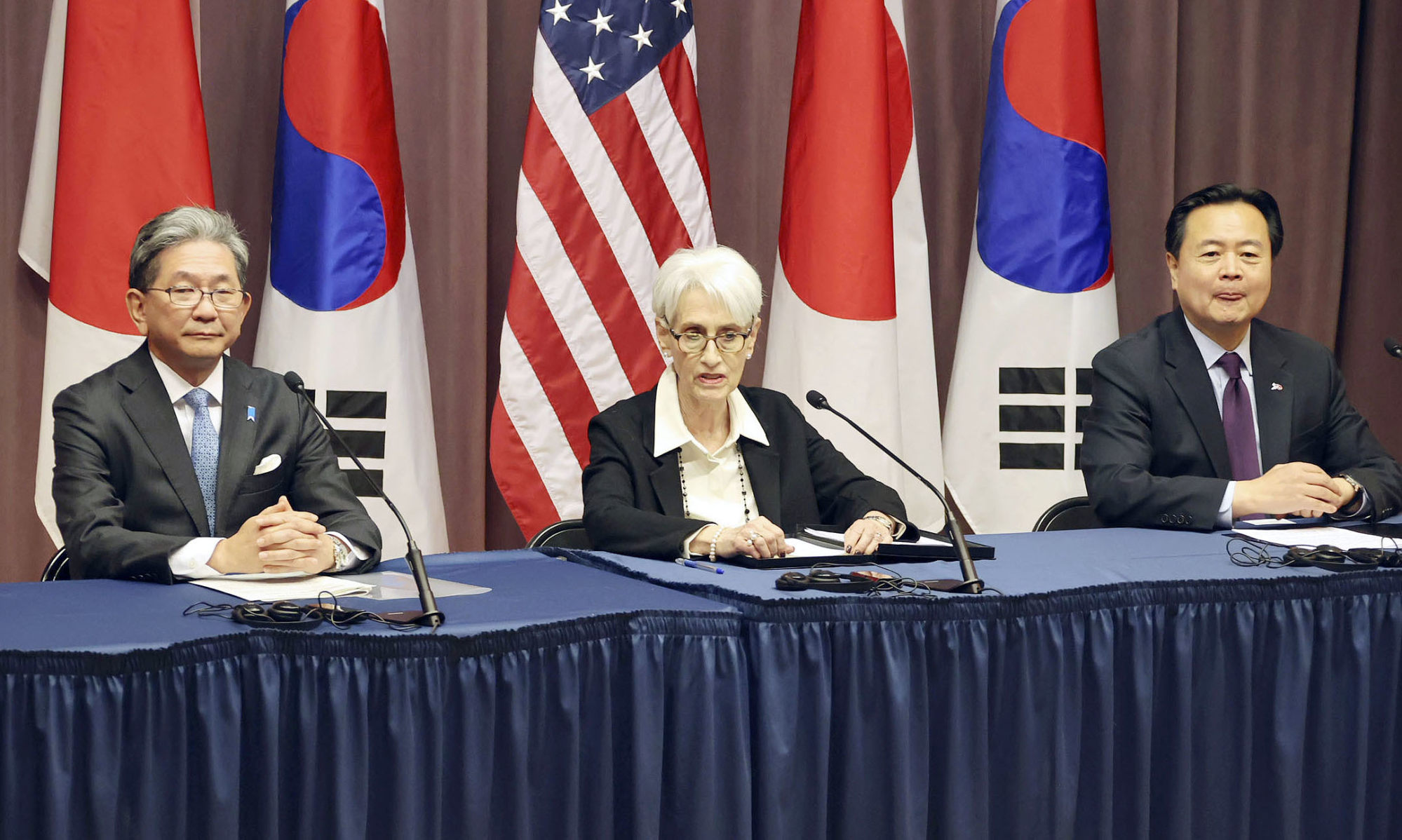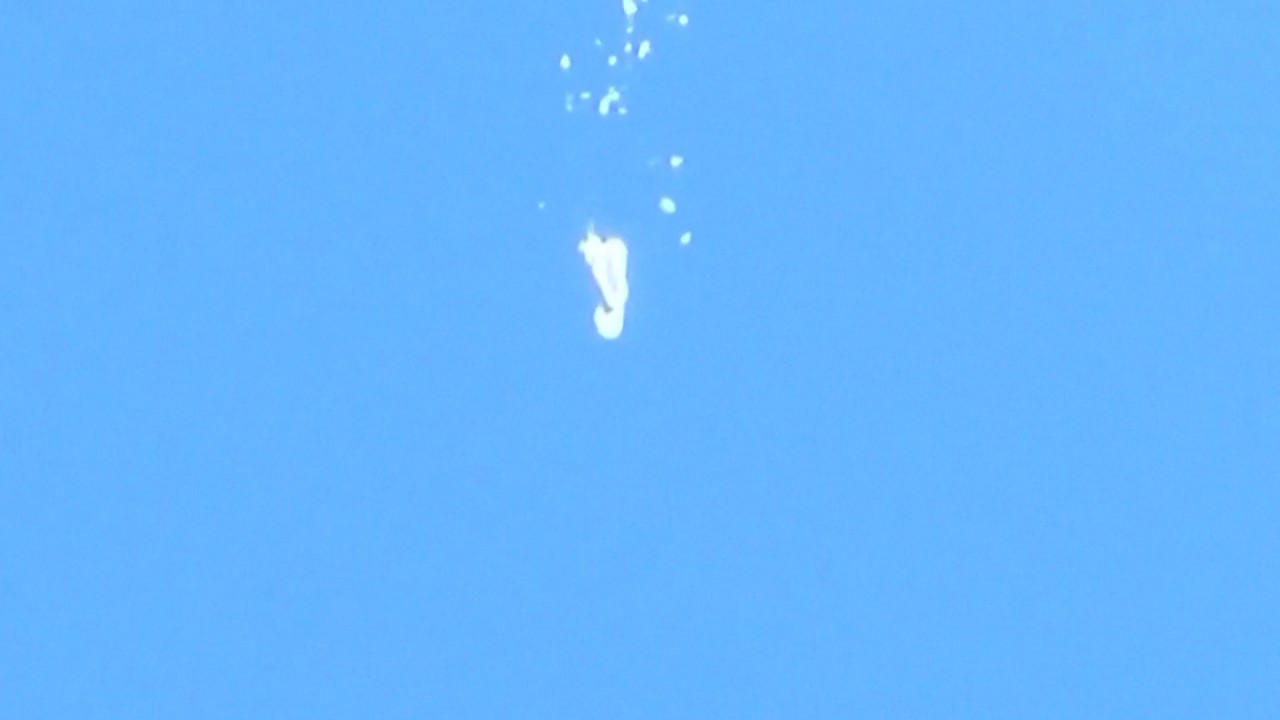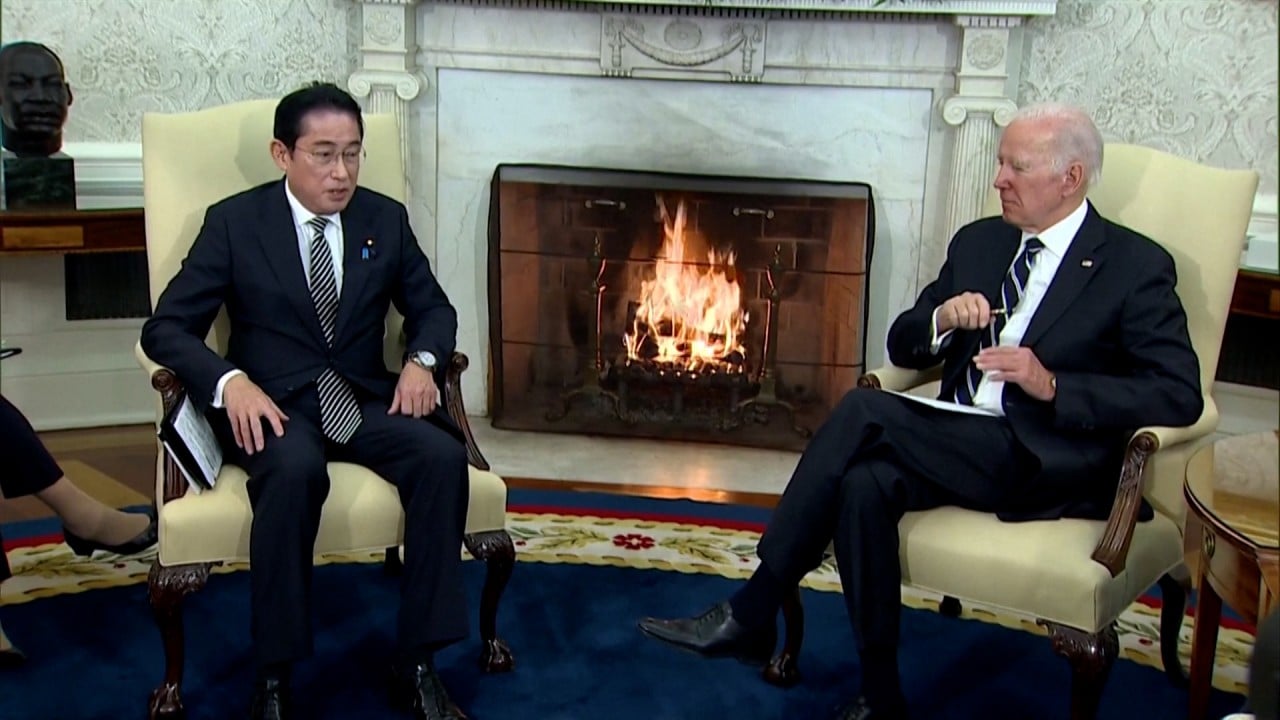
China calls on Japan, South Korea to shun ‘spy balloon’ rumours and ‘stop following the US’
- ‘Japanese side should uphold an objective and impartial position,’ Chinese foreign ministry says, after similar appeal made to Seoul envoy
- China will need to manage ties with US-allied major trade partners Japan and South Korea carefully following balloon saga, observers warn
In its statement late on Tuesday, the Japanese Ministry of Defence said it had “strongly demanded China’s government confirm the facts” on the sightings in November 2019, June 2020 and September 2021, and ensure “that such a situation not occur again in the future”.
China has said its civilian unmanned airship, which was shot down by the US military, strayed into American airspace “completely” by accident in a force majeure event.
“The Japanese side should uphold an objective and impartial position, take a correct view of this unforeseen situation caused by force majeure, and stop following the US to engage in artificial speculation and exploit the issue.”
China also made a similar appeal to South Korea earlier, with vice foreign minister Sun Weidong telling Korean ambassador Chung Jae-ho that Seoul should “discern right from wrong and make objective, rational and fair judgments”.
During their meeting on Tuesday, Sun “clarified China’s position over the US’ downing of Chinese civilian unmanned airships” and the two sides also exchanged views over issues of common concern, according to a foreign ministry statement.
Observers in China said Beijing might need to carefully manage ties with leading trade partners Japan and South Korea – both major US allies in the region – following the balloon controversy.

Wang Yong, a professor at Peking University, said the balloon saga would further hurt China’s ties with both Asian neighbours.
“The relationship between China and South Korea will become more challenging,” Wang said.
“Nationalist sentiments, historical reasons, and conflict between China and the US will continue to affect bilateral ties.
“China, South Korea and Japan have to work together to establish mutual trust mechanisms, [as well as] communication and negotiation mechanisms, or future prospects will worsen and possibly lead to regional wars.”
Japan and South Korea were not the only countries to impose travel restrictions on Chinese travellers to prevent the import of Covid-19 infections. But a furious Beijing slammed the rules as discriminatory as it took “reciprocal countermeasures”.
But Beijing resumed visa services for Japanese nationals on January 29, and announced on Wednesday that visa issuance for South Koreans would also restart from Saturday, one week after Seoul once again began accepting short-term visa applications from Chinese nationals.
Additional reporting by Sylvie Zhuang



